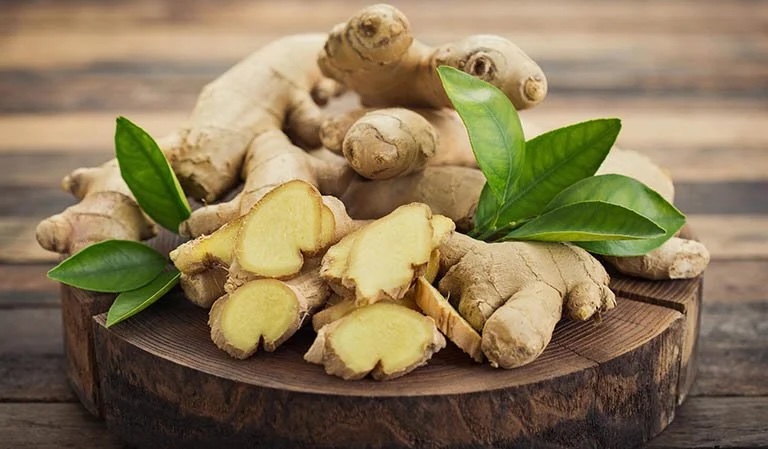Ginger, scientifically known as Zingiber officinale Roscoe, is commonly incorporated as a culinary spice and holds a significant place in traditional medicinal practices. Gingerol, the primary bioactive compound in ginger, is credited for bestowing the herb with its medicinal properties.
Health Benefits of Ginger
Ginger Exerts Anti-inflammatory Effects
Inflammation is the body’s natural response to injury or infection; however, chronic inflammation can contribute to health problems. Ginger is renowned for its potent anti-inflammatory capabilities, effectively mitigating inflammatory conditions, including ailments like arthritis and osteoarthritis.
Ginger Alleviates Nausea
Ginger has been employed for millennia as a natural remedy to combat nausea and motion sickness. Researchers at John Hopkins Medicine affirm that ginger is effective in reducing post-chemotherapy-induced nausea in cancer patients, often without causing adverse side effects compared to anti-nausea medications.
A 2023 article published in the journal Nutrients revealed that integrating ginger into diets may reduce acute vomiting episodes in chemotherapy patients and alleviate associated discomfort levels.

Ginger has been employed for millennia as a natural remedy to combat nausea and motion sickness
Ginger Supports Weight Loss
If you’re striving to shed unwanted pounds, ginger may be the ingredient you need. A study published in Taylor and Francis Online found that incorporating ginger into the diet significantly reduced body weight and improved waist-to-hip ratio in overweight or obese individuals.
Ginger Lowers Blood Sugar Levels
Ginger has emerged as a potent ally in managing type 2 diabetes. Regular consumption of ginger powder daily can effectively reduce fasting blood glucose levels and HbA1c levels, a measure of average blood glucose over the past 3 months, according to findings published in the Journal of Ethnopharmacology.

Ginger has emerged as a potent ally in managing type 2 diabetes
Ginger Relieves Bloating
Consuming ginger can aid in reducing digestive gas production, alleviating constipation and other issues that contribute to bloating and feelings of abdominal distension.
How to Use Ginger
Experts recommend incorporating ginger into your diet and beverages rather than relying on ginger supplements, which may contain unwanted additives. Ginger tea is a popular option, but you can also include fresh minced or grated ginger, ground ginger, or dried and powdered ginger in numerous culinary creations.
Ginger can balance the sweetness of fruit and add an intriguing flavor dimension to savory dishes, such as lentil soup.
Pickled ginger, often thinly sliced and served alongside sushi, is another wholesome alternative. This condiment offers the health-promoting components of ginger along with the probiotic benefits of fermentation, all while being typically lower in sodium compared to other pickled foods.

Pickled ginger, often thinly sliced and served alongside sushi, is another wholesome alternative
Side Effects of Ginger
Research indicates that ginger is generally safe for most people when consumed in typical dietary amounts, such as in foods and recipes. However, a few specific concerns exist:
Using ginger in high doses, as found in supplements, may increase bleeding risk. Individuals taking blood-thinning medications (i.e., warfarin, aspirin, and others) should exercise caution when using ginger.
Diabetic patients taking glucose-lowering medications can consume ginger in normal dietary amounts but should avoid high-dose ginger supplements.

































